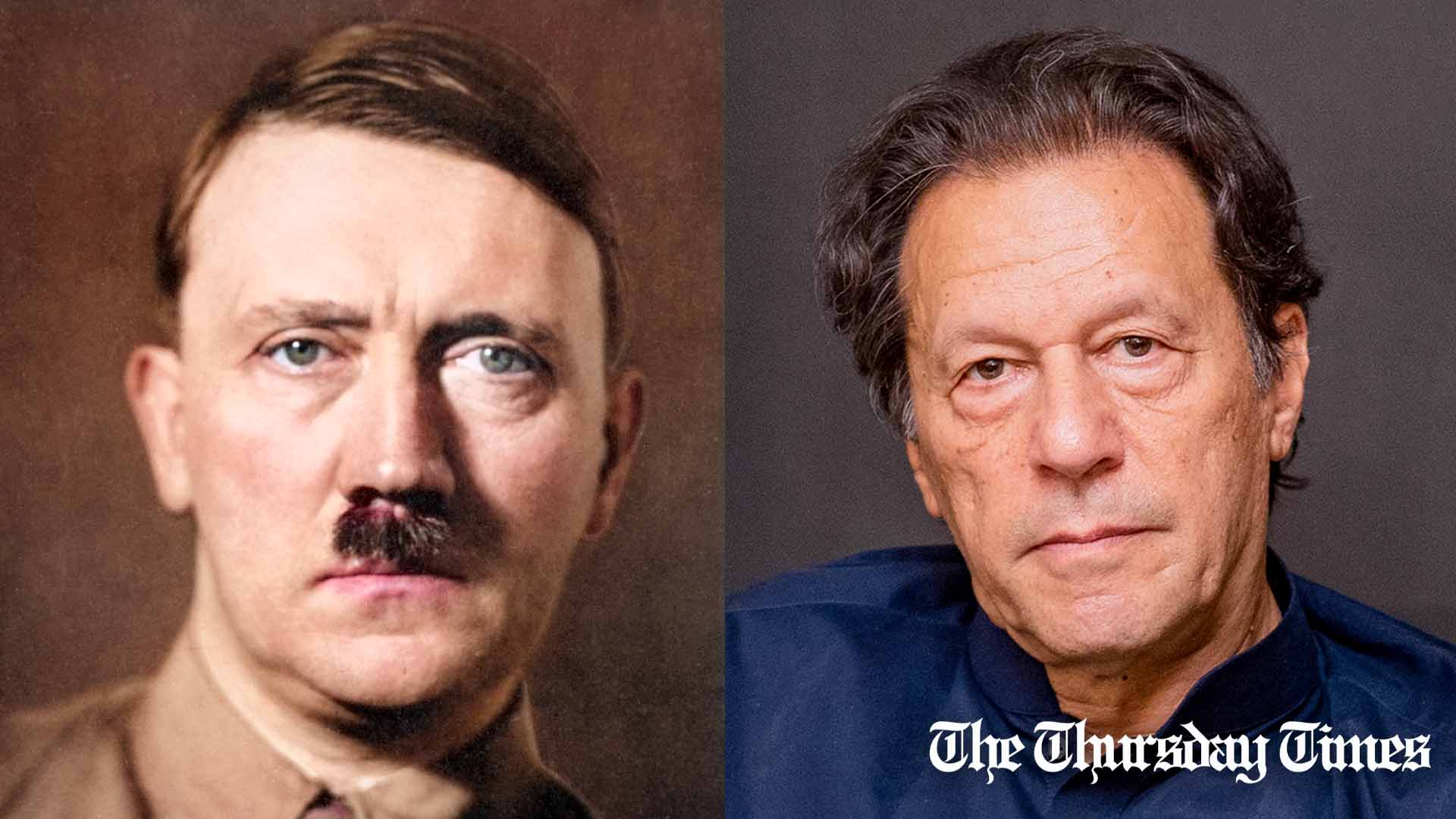IT IS DISGRACEFUL FOR the former prime minister to suggest in a tweet that the actions of the ruling coalition, in prosecuting the PTI workers involved in the arson and vandalism committed on several state institutions, is akin to that of the Nazi leadership’s conduct in February of 1933. However, the incumbent PTI chairman has, indeed, challenged a school of thought present in the minds of many across Pakistan with this — is it unfair to compare a politician to Adolf Hitler? In Imran Khan’s case, this can be seen in how utilised his public persona and sensationalist tactics to garner votes; all in the butchered name of populist politics.
How arson was used by Hitler to crush his opponents, the communists.
Similar frame up is going on in Pakistan. pic.twitter.com/CMaUhaSABH— Imran Khan (@ImranKhanPTI) May 22, 2023
Populist politics has long been a significant force in shaping the political landscape of various nations throughout history. While drawing comparisons between these two figures seems controversial, it is worth noting that both Imran Khan and Adolf Hitler experienced intense rises to power through their respective populist movements. Imran Khan, the former cricketer, utilised his public image to connect with disillusioned masses in Pakistan, ensuring a sweep of reforms and effectively ending corruption. Similarly, Hitler capitalised on post-World War I grievances, economic turmoil, and the German people’s sense of humiliation from the Treaty of Versailles. Hitler’s fiery oratory skills and ability to tap into nationalist sentiments propelled him to the position of Chancellor in 1933, similar to Khan’s ability of appealing to the elitist class in Pakistan by means of his effortless speech-giving capabilities.
Imran Khan and Adolf Hitler both employed populist appeals and nationalist rhetoric in order to mobilise their supporters. Khan advocated for a new era of justice and accountability, directly targeting ‘the common Pakistani’. Hitler’s National Socialist German Workers’ Party also propagated a vision of a ‘pure’ nation, blaming a variety of groups for Germany’s economic and social woes. Both leaders skilfully used these narratives to build a fervent following—particularly within the youth.
Charismatic leadership played a pivotal role in the political success of both Khan and Hitler. Hitler’s powerful ability to captivate audiences enabled him to establish a cult-like following, with many Germans mesmerised by his speeches and the force of his personality. Similarly, Imran Khan’s charismatic leadership has also given rise to a devoted cult following—his appeal transcends traditional party politics, forming a big tent of fans who view him as Pakistan’s political messiah, of sorts. This cult is characterised by its unabated loyalty, standing by Khan regardless of evidence of hypocrisy—be that corruption charges or otherwise—that comes to light.
Once in power, both Khan and Hitler took steps to consolidate their authority, leading to an erosion of democratic checks and balances. Hitler had systematically dismantled democratic institutions and consolidated power under his totalitarian regime, ultimately establishing the Third Reich. In much the same way, Khan’s government attempted to dismantle democratic conduct by forming alliances with both the military and the judiciary, causing concerns about the independence of these institutions under their previous leadership.
It was only after the 2022 intervention of a vote of no-confidence that distanced this Orwellian dream from Khan’s grasp. ∎






